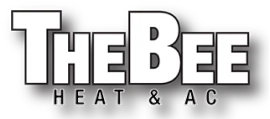Heating, ventilation and air conditioning (HVAC) systems are essential for providing comfort and good indoor air quality. However, they also consume a significant amount of energy and contribute to greenhouse gas emissions. According to the U.S. Department of Energy, HVAC systems account for about 48% of the energy use in a typical U.S. home, making it the largest energy expense for most households.
On This Article
hide
1)
1. Lower energy bills:
2)
2. Reduced environmental impacts:
3)
3. Improved indoor air quality:
4)
4. Enhanced comfort and productivity:
5)
FAQs
5.1)
What is HVAC and why is it important?
5.2)
How much energy do HVAC systems typically use in a US home?
5.3)
What are some ways to improve the energy efficiency of HVAC systems?
5.4)
How much can programmable thermostats save on heating and cooling costs per year?
5.5)
What are some benefits of improving the energy efficiency of HVAC systems?
5.6)
What incentives may be available to offset the initial costs of improving the energy efficiency of HVAC systems?
Improving the energy efficiency of HVAC systems can reduce energy bills, lower environmental impacts and enhance indoor air quality and comfort. There are many ways to achieve this goal, such as:
Choosing high-efficiency HVAC equipment that meets or exceeds the minimum standards set by energy codes and standards. For example, ENERGY STAR® certified products can save up to 20% or more on heating and cooling costs compared to standard models.
Installing proper insulation, air sealing and duct sealing to minimize heat loss or gain through the cracks and leaks. This can reduce heating and cooling loads by up to 30%.
Using programmable or smart thermostats to adjust temperature settings according to occupancy patterns and preferences. This can save up to 10% on heating and cooling costs per year.
Maintaining and servicing HVAC equipment regularly to ensure optimal performance and prevent breakdowns. This can extend the lifespan of the equipment and avoid costly repairs or replacements.
Integrating renewable energy sources such as solar thermal collectors, geothermal heat pumps or biomass boilers with HVAC systems to provide clean and low-cost heating or cooling. This can also reduce dependence on fossil fuels and grid electricity.
Implementing demand-response strategies such as peak shaving, load shifting or thermal storage with HVAC systems to reduce peak demand and electricity costs. This can also improve stability and reliability.
Some of these measures may require upfront investments but they can pay off in the long run through lower operating costs and higher returns. Moreover, some incentives such as rebates, tax credits or financing options may be available from utilities, governments or other organizations to help offset the initial costs.
By improving the energy efficiency of HVAC systems, building owners and occupants can enjoy multiple benefits such as:
1. Lower energy bills:
According to a study by Lawrence Berkeley National Laboratory, integrating ground-level diverse energy storage with HVAC could reach overall energy storage efficiency of 70% and improve HVAC performance by 35%. This could translate into significant savings on electricity bills over time.
2. Reduced environmental impacts:
By using less energy for heating and cooling, HVAC systems can emit less greenhouse gases that contribute to climate change. For instance, upgrading a furnace or boiler from 56% to 90% efficiency can save 1.5 tons of carbon dioxide emissions each year if heated with natural gas, or 2.5 tons if heated with oil.
3. Improved indoor air quality:
By ensuring proper ventilation and filtration of indoor air, HVAC systems can remove pollutants such as dust mites, mold spores, volatile organic compounds (VOCs) or radon that may cause health problems such as allergies, asthma or lung cancer.
4. Enhanced comfort and productivity:
By maintaining optimal temperature and humidity levels in different zones of a building according to occupant needs and preferences.
FAQs
What is HVAC and why is it important?
HVAC stands for Heating, Ventilation, and Air Conditioning. It is important because it provides comfort and indoor air quality in buildings.
How much energy do HVAC systems typically use in a US home?
According to the U.S. Department of Energy, HVAC systems account for about 48% of the energy use in a typical U.S. home, making it the largest energy expense for most households.
What are some ways to improve the energy efficiency of HVAC systems?
Some ways to improve the energy efficiency of HVAC systems include choosing high-efficiency HVAC equipment, installing proper insulation and duct sealing, using programmable thermostats, maintaining and servicing equipment regularly, integrating renewable energy sources, and implementing demand response strategies.
How much can programmable thermostats save on heating and cooling costs per year?
Using programmable thermostats can save up to 10% on heating and cooling costs per year.
What are some benefits of improving the energy efficiency of HVAC systems?
Improving the energy efficiency of HVAC systems can lead to lower energy bills, reduced environmental impacts, improved indoor air quality, and enhanced comfort and productivity for building occupants.
What incentives may be available to offset the initial costs of improving the energy efficiency of HVAC systems?
Some incentives that may be available to offset the initial costs of improving the energy efficiency of HVAC systems include rebates, tax credits, and financing options from utilities, governments, or other organizations.
